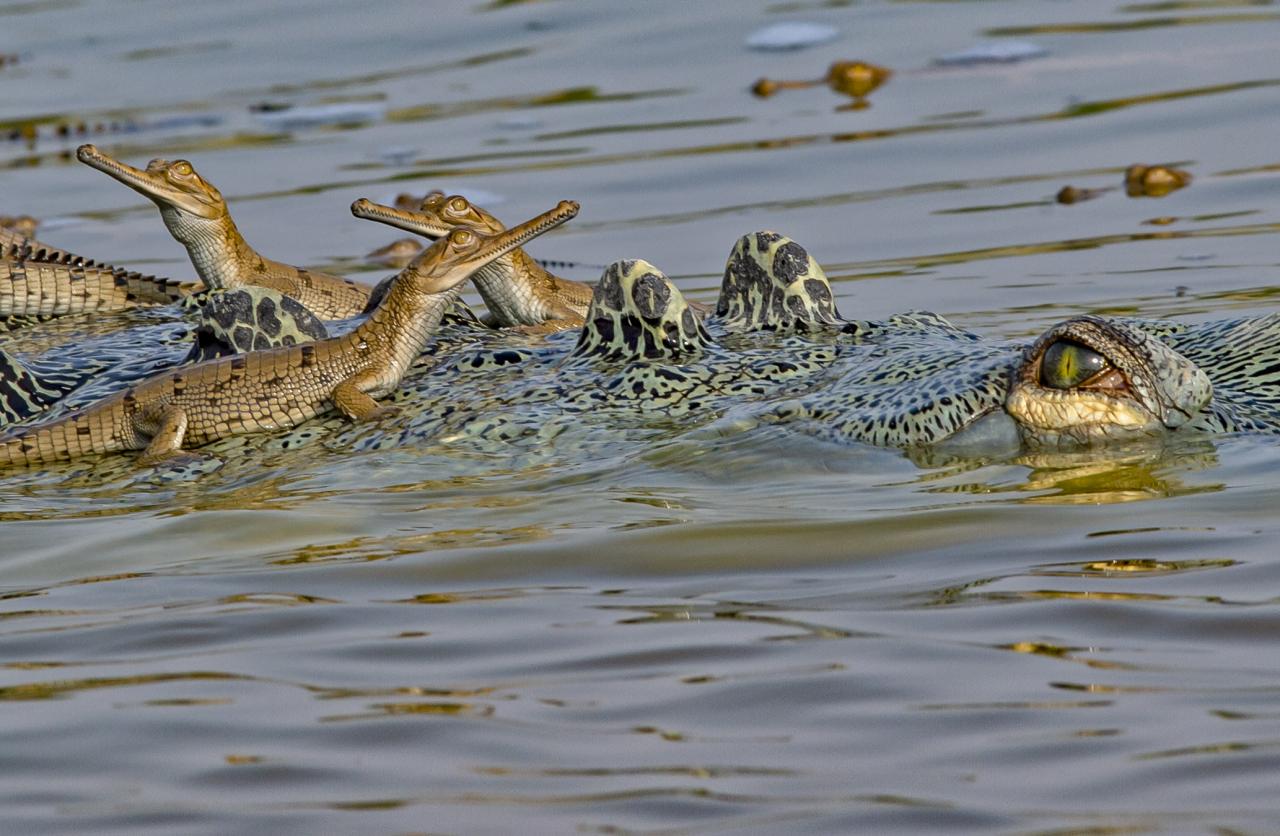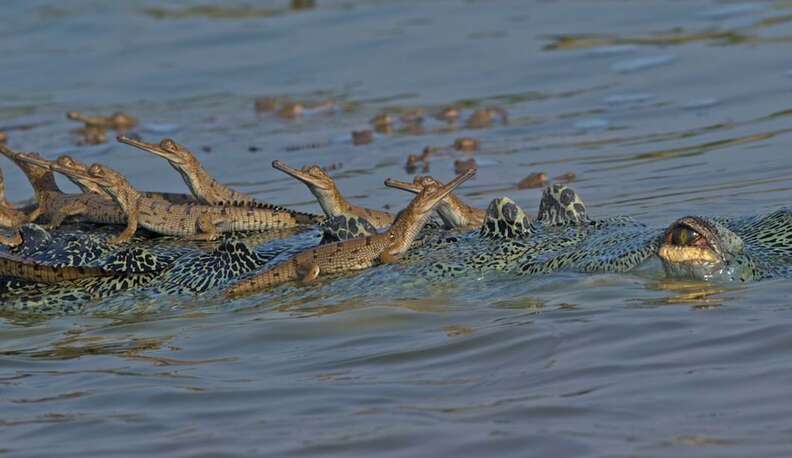Wildlife photographer Dhritiman Mukherjee went to India’s National Chambal Gharial Wildlife Sanctuary in the hopes of capturing some beautiful pictures of this endangered crocodile species, but he came away with more than he had anticipated.
The highly endangered gharial crocodile was the reason the award-winning photographer, who has over 25 years of experience in the field, came to this location. These extinct reptiles have unusually long long noses that are perfectly equipped to aid in fish capture.

The IUCN Red List estimates that fewer than 650 of these enormous animals, which may grow to be 19 feet long on average, are still alive today. Sadly, they formerly frequented almost all of South Asia’s major rivers. But for Mukherjee, it was a dream come true because he was able to photograph a big gharial male tending to his more than one hundred young.

This was a huge mature male, 16 to 17 feet tall, who had mated with 7-8 females and was well-known to park officials. “Typically, one male mates with eight to nine females, and the male alone guards the babies of all the females he mates with,” the photographer said. On his back, you can see children on his back that are from different females.

The gharials protect their young by carrying them on their backs, in contrast to other crocodile subspecies that used to do so. The gharial is fiercely protective of its young despite being remarkably shy for such a huge animal.








